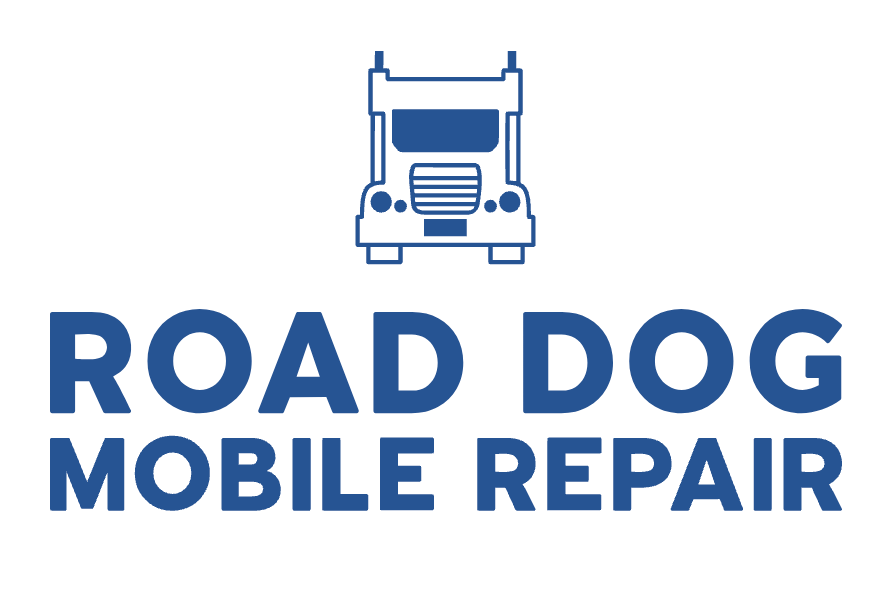How Preventive Maintenance Saves Your Truck from Major Breakdowns
If you own or manage commercial trucks, you know how much your business depends on keeping them running smoothly. When a truck breaks down unexpectedly, it's not just about the repair bill: your operations come to a halt, schedules fall apart, and customers start asking questions. The good news? Most of these expensive headaches can be prevented with a smart approach to truck care.
Think of preventive maintenance as your truck's health insurance plan. Instead of waiting for something to break and then scrambling to fix it, you're taking care of problems before they become problems. This means regular check-ups, scheduled services that your team or a team of professionals can execute, and replacing parts before they fail, all during times that work for your schedule, not when you're stuck on the side of the road.
Here's what makes this approach so valuable: the money you invest in preventive maintenance comes back to you many times over. You'll save on emergency repairs, keep your trucks running longer, and most importantly, keep your business moving forward without those costly surprise breakdowns that can really hurt your bottom line and reputation.
Key Takeaways
- Regular PM services can reduce unexpected breakdowns by up to 70% and extend truck lifespan by 20-30%
- A structured PM schedule based on mileage, hours, and time intervals optimizes maintenance timing and costs
- Preventive maintenance programs typically save $3-5 for every dollar invested through reduced emergency repairs
- Digital maintenance logs and tracking systems improve compliance and help identify patterns before they become problems
- Fleet preventive maintenance reduces total operating costs while improving safety, reliability, and resale value
- Professional PM services provide expertise and specialized tools that ensure thorough inspections and quality work
Understanding Truck Preventive Maintenance for Commercial Vehicles
Let's start with the basics. Preventive maintenance for vehicles is all about staying ahead of problems instead of chasing after them. While reactive maintenance has you fixing things after they break, preventive maintenance (PM) helps you spot issues early and take care of them before they turn into expensive headaches or safety concerns.
Your truck is essentially a complex puzzle with thousands of moving parts that all need to work together. When one system starts wearing down, it often puts extra stress on others, creating a domino effect that can lead to major breakdowns. Regular maintenance steps in to catch these wear patterns, check fluid quality, and identify stressed components before they reach the point of no return.
Today's best truck preventive maintenance systems combine traditional scheduled maintenance with smart predictive technology. While you'll still follow time-based and mileage-based schedules, modern systems also use real vehicle data, oil analysis, and performance monitoring to help you fine-tune when maintenance is actually needed. This combination gives you the most effective approach to keeping your fleet running smoothly.
There's a world of difference between planned preventive maintenance and emergency repairs. When you schedule maintenance, your technicians can work efficiently with the right tools and parts ready to go. Emergency repairs? That's when you're paying premium prices for rush parts, overtime labor, and quick fixes that might not be ideal – not to mention the stress of dealing with it all when you least expect it.
Essential Components of a PM Schedule
Creating a good PM schedule is like finding the sweet spot between keeping your trucks in great shape and not having them out of service all the time. You want to balance maintenance frequency with business needs, considering how different parts wear out, operating conditions, and manufacturer recommendations.
Daily and Pre-Trip Inspections
Think of daily inspections as your first line of defense, or quick checks that save you from major problems down the road. These simple walkarounds help spot obvious issues like fluid leaks, tire problems, broken lights, or strange noises before they leave you stranded. Your drivers are your best early warning system, focusing on safety-critical items like fluid levels, tire condition, lights, brakes, and steering.
Scheduled Service Intervals
Most planned and preventative maintenance schedules work in layers. Your most frequent services, usually every 10,000-15,000 miles or 250-500 engine hours, cover basics like oil changes, filter replacements, and visual inspections. These keep everything running smoothly.
Intermediate services at 25,000-50,000 miles get more thorough with transmission fluid changes, brake inspections, and comprehensive component checks. Major service intervals at 100,000+ miles include extensive inspections, coolant flushes, transmission overhauls, and comprehensive diagnostics, and are the perfect opportunities to address accumulated issues.
Maintenance Interval Reference Table
| Service Interval | Key Services | Typical Mileage |
|---|---|---|
| Basic Service | Oil change, filter replacement, fluid checks | 10,000-15,000 miles |
| Intermediate Service | Transmission service, brake inspection, air filters | 25,000-50,000 miles |
| Major Service | Engine overhaul, cooling system, comprehensive diagnostics | 100,000+ miles |
Building an Effective Preventive Maintenance Program
Building a solid preventive maintenance program takes planning, the right resources, and a willingness to adjust as you learn what works. The most successful programs find that sweet spot where you're taking great care of your trucks without excessive downtime. Your program should be flexible enough to grow as your fleet needs evolve and new technology becomes available.
Start by gathering detailed information about each vehicle, including specifications, maintenance history, current condition, and how it's used. Understanding whether a truck does highway driving or city work, operates in dusty conditions, or carries heavy loads helps create schedules that match real-world demands. Some maintenance tasks require specialized tools or expertise that might not make financial sense to maintain in-house.
PM Scheduling Strategies
Good PM scheduling is about timing, that is, doing maintenance when it helps most and disrupts operations least. Consider vehicle availability, maintenance capacity, and when business is naturally slower. The smartest fleets use flexible scheduling that looks at both calendar time and actual usage, tracking multiple factors and alerting when any hits the limit.
Documentation and Record Keeping
Good record-keeping is crucial for effective fleet management. Your preventive maintenance log should capture everything: services performed, parts replaced, measurements taken, and technician observations. Digital systems make this easier with searchable databases and automated reporting. Modern systems can analyze data to spot trends and optimize schedules. Remember, the point of preventive maintenance is to prevent problems, and good data helps measure success.
Cost-Benefit Analysis of Preventive Maintenance
Let's talk numbers: preventive maintenance needs to make financial sense for your business. Scheduled maintenance does require upfront investment, but these planned expenses are typically 30-50% lower than emergency repairs. Emergency repairs hit you with premium pricing for rush parts, overtime labor, and emergency service calls because you need everything fixed immediately.
The real eye-opener is hidden costs from unexpected breakdowns. When your truck is stranded, you're losing money on missed deliveries, dealing with unhappy customers, and scrambling to rearrange schedules. These indirect costs often exceed the actual repair bill.
Calculating Return on Investment
To understand your return on preventive maintenance, track emergency repair reductions, downtime savings, better fuel efficiency, and extended vehicle life. Most fleet operators find that every dollar spent on preventive maintenance saves three to five dollars in total operating costs, which is a solid ROI.
Fleet preventive maintenance programs keep trucks available and reliable, meaning they're making money instead of sitting in repair shops. Well-maintained trucks typically run 20-30% longer than reactively maintained vehicles, delaying expensive replacements while commanding higher resale prices due to documented maintenance history.
Choosing Professional Preventive Maintenance Services
Sometimes the smartest move is knowing when to bring in the professionals. Professional preventive maintenance services bring specialized expertise, advanced equipment, and efficiency that can be tough to match if you're trying to handle everything in-house. These folks live and breathe truck maintenance: they stay current on new technology, invest in the latest diagnostic equipment, and often provide better quality work at a lower total cost than trying to do it all yourself.
When you're shopping for preventive maintenance services, don't just look at the price tag. Consider what you're really getting for your money: things like quality certifications, how well-trained their technicians are, what their facility can handle, and how they treat their customers. If you're in a specific area like preventive maintenance in Tulsa OK or other regional markets, having a local partner who understands your area and can respond quickly when you need them can be incredibly valuable.
Service Integration and Technology
The best truck preventive maintenance services today work seamlessly with your existing fleet management systems, making coordination much easier. This integration means automatic scheduling, real-time updates on service progress, and detailed reports that help you make better decisions about your fleet. Plus, when everything talks to each other, you spend less time on paperwork and more time running your business.
Professional service centers also have access to advanced diagnostic tools that can catch problems you might miss with basic inspections. Today's trucks are essentially computers on wheels, with sophisticated electronic systems that need specialized equipment and training to service properly. Professional services invest in staying current with this rapidly evolving technology, so you don't have to.
Implementing Technology in Maintenance Programs
Technology is revolutionizing how we approach truck maintenance, and the good news is that it's making everything easier and more effective. Modern preventive maintenance systems bring together real-time vehicle data, automated scheduling, and predictive capabilities to help you stay ahead of problems. Instead of guessing when your truck needs attention, you get solid data that tells you exactly what's happening and when action is needed.
Telematics systems are like having a constant health monitor for your trucks. They keep track of engine performance, fuel efficiency, and how your vehicles are being used, then alert you when something doesn't look right. The best part? This information can be fed directly into your maintenance management system, so you can automatically schedule services based on what's actually happening with your truck, not just what the calendar says. Mobile technology lets your drivers and maintenance team access information and update records from anywhere, which means faster response times and better communication all around.
Frequently Asked Questions
How often should I schedule preventive maintenance for my truck?
Most commercial trucks require basic preventive maintenance every 10,000-15,000 miles or every 3-6 months, whichever comes first. However, the optimal schedule depends on your truck's age, operating conditions, and manufacturer recommendations, so consulting with maintenance professionals helps establish the best intervals for your specific situation.
What is the difference between preventive and predictive maintenance?
Preventive maintenance follows predetermined schedules based on time, mileage, or operating hours, while predictive maintenance uses real-time data from sensors and diagnostics to determine optimal maintenance timing. The most effective programs combine both approaches to maximize reliability while minimizing unnecessary maintenance.
Can I perform preventive maintenance myself or should I use professional services?
Basic maintenance like fluid checks and visual inspections can often be performed in-house, but complex services requiring specialized tools or expertise should be handled by professional PM services. The decision depends on your technical capabilities, available equipment, and the complexity of maintenance required.
How much should I budget for preventive maintenance on my truck fleet?
Industry benchmarks suggest budgeting 10-15% of total operating costs for preventive maintenance, though actual costs vary based on vehicle age, usage, and operating conditions. While this may seem significant, preventive maintenance typically saves 3-5 times its cost through reduced emergency repairs and improved reliability.
What records should I keep for my preventive maintenance program?
Maintain detailed records of all services performed, parts replaced, measurements taken, and issues identified during inspections. Digital maintenance logs provide the best organization and accessibility, enabling trend analysis and supporting warranty claims or regulatory compliance when needed.
Final Thoughts
When it comes to protecting your investment and keeping your business running smoothly, preventive maintenance is one of the smartest moves you can make. By taking a proactive approach with scheduled inspections and regular maintenance, you're building a strong defense against those expensive surprises that can really hurt your bottom line. Yes, there's an upfront investment involved, but the payback in avoided repairs, better reliability, and longer truck life makes it well worth it.
Success with preventive maintenance comes down to staying consistent, keeping good records, and being willing to adjust your approach as you learn what works best for your operation. The most successful programs grow and improve over time, taking advantage of new technology and adapting to changing business needs. Whether you decide to handle maintenance in-house or work with professional services, the important thing is having a comprehensive plan that covers all aspects of truck care.
At the end of the day, investing in preventive maintenance gives you something that's hard to put a price on: peace of mind. When you know your trucks are well-maintained, you can focus on growing your business instead of constantly worrying about the next breakdown. In today's competitive world, having reliable transportation isn't just nice to have; it's absolutely essential for success. Take care of your trucks, and they'll take care of your business.
Ready to protect your fleet? Contact us today for a custom PM schedule.
Reference:
https://www.geotab.com/blog/what-is-telematics/










